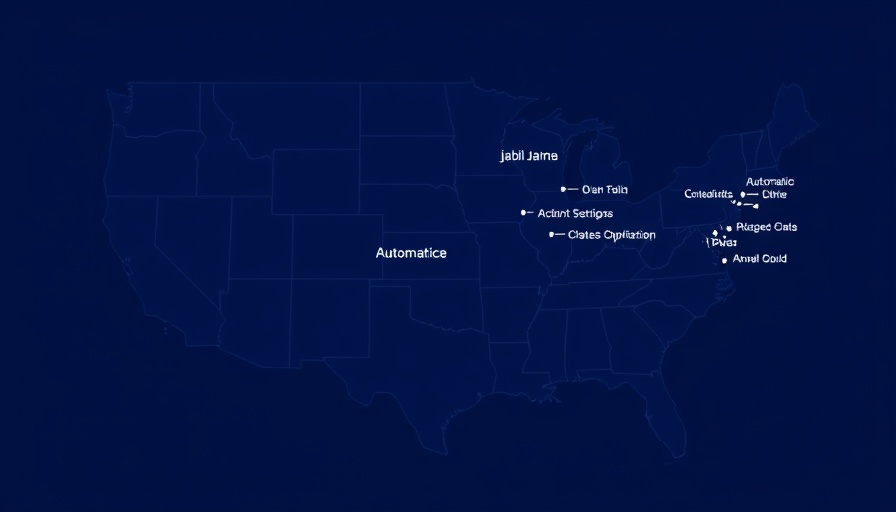
TomTom's Strategic Pivot: Embracing AI for Future Growth
In a bold move that reflects the growing influence of artificial intelligence (AI) in various sectors, GPS maker TomTom has announced it will cut 300 jobs as part of its new product-led strategy. This shift underscores the company's commitment to leveraging AI for enhancing its product offerings and overall operational efficiency. The decision was undoubtedly influenced by a dynamic marketplace where traditional GPS devices have seen dwindling use due to the popularity of free mobile applications like Google Maps, Apple Maps, and Waze.
Changes in Product Focus
According to CEO Harold Goddijn, the focus of TomTom is now directed towards mobile navigation apps and enterprise mapping services. Following the decision to cease selling portable GPS units in the U.S. in 2023, TomTom has pivoted entirely towards digital solutions. The company is now developing apps like TomTom GO Navigation and AmiGO, alongside offering maps and traffic data to a variety of corporate partners, including Microsoft, thereby gaining a foothold in the tech ecosystem.
Job Cuts in Context: A Broader Trend
This recent decision aligns TomTom with a wider trend seen within the tech industry, where companies like Salesforce and Amazon have also announced job reductions as they embrace automation and AI technology. Salesforce, for instance, reduced its workforce by 1,000 but simultaneously leaned into creating new AI-focused roles. This example highlights a significant transformation in business models, where adapting to technological advancements often necessitates shedding old roles while embracing new ones.
The Future of Navigation: What Lies Ahead?
Looking forward, the implications of these job cuts and strategic shifts extend beyond just TomTom. As companies increasingly seek efficiencies through AI, consumers can expect a remarkable enhancement in navigation technologies. AI's ability to process vast amounts of data quickly will likely lead to apps that offer real-time traffic updates and personalized route recommendations. TomTom’s investment in technology is expected to pave the way for cutting-edge features that enhance user experience and, in doing so, may rejuvenate interest in in-dash systems that integrate seamlessly with mobile devices.
Emotional Impact on Employees and Consumers
The decision to reduce the workforce, while strategically sound, may have emotional ramifications for employees affected by these layoffs. For many, the transition from a job in a traditional sector to one driven by AI can be unsettling. However, this shift also presents an opportunity for those who remain, as they can be part of the innovative transformation taking place. Creating an adaptable, highly-skilled workforce to navigate the challenges of technological advancement will be crucial in fostering not only corporate success but also personal career growth.
Your Next Steps in Navigating Change
For individuals in or around the tech and navigation sectors, staying informed about these changes is vital. Embracing lifelong learning and adaptability will position workers to thrive in an evolving job market increasingly shaped by AI. The insights and developments at companies like TomTom can serve as a learning experience, encouraging professionals to acquire new skills that align with emerging technologies.
As TomTom embraces AI, it encourages a proactive response from its employees and stakeholders not just to cope but to thrive. This reflects a broader trend of innovation in the workplace, where adaptability and skill enhancement may redefine job roles within the tech landscape. In this ever-changing landscape, staying connected and continuously learning can ensure that career paths remain dynamic and fulfilling. For more tips and techniques to prepare yourself for the changing workforce, consider visiting Prompt2Human.
 Add Row
Add Row  Add
Add 




 Add Row
Add Row  Add
Add 

Write A Comment